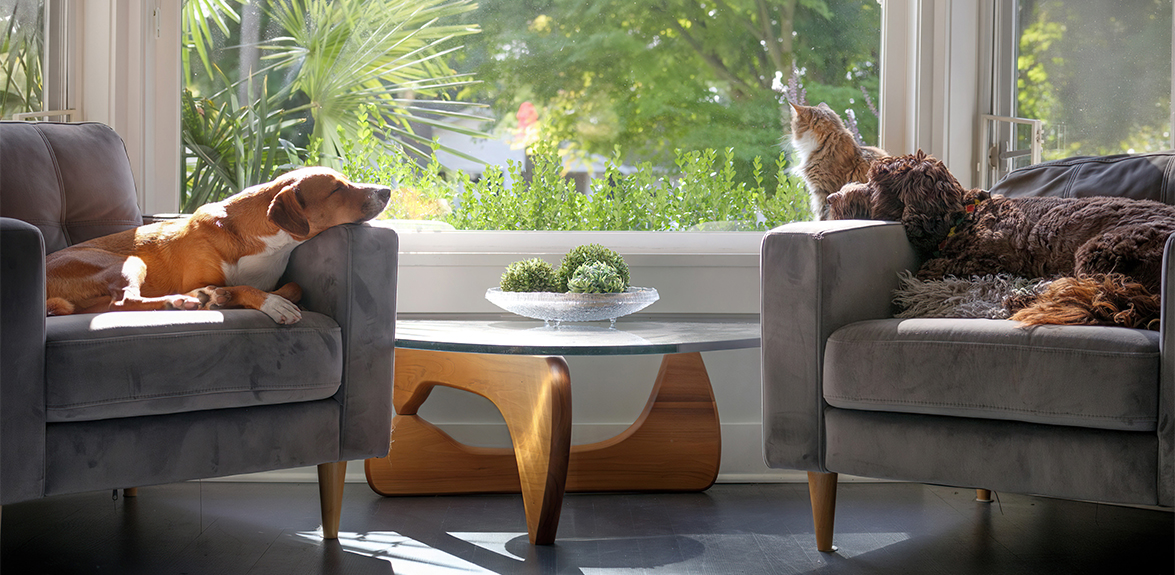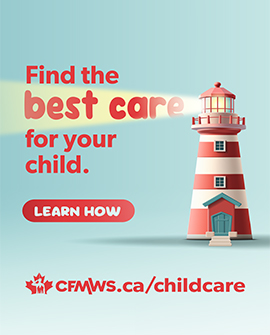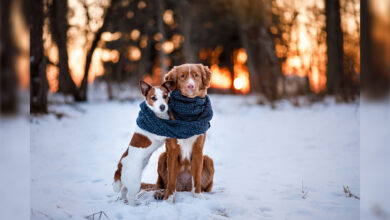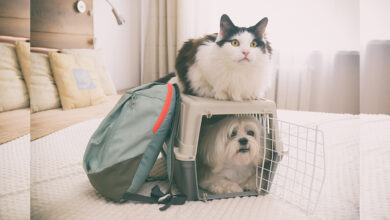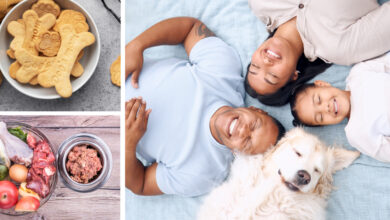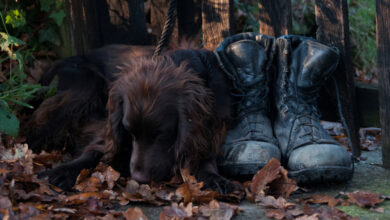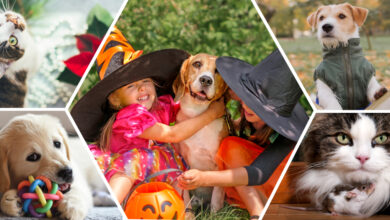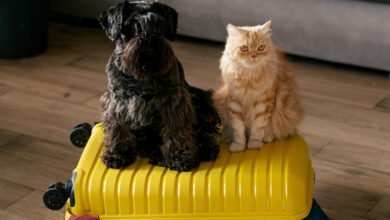 Pet owners are usually the first to know what Champ and Oreo can and can’t eat, even eliminating bothersome or pesky items from the house.
Pet owners are usually the first to know what Champ and Oreo can and can’t eat, even eliminating bothersome or pesky items from the house.
However, even the most educated pet owners might need to catch up on a few key household items that can harm their furry and feathered family members. With the help of Dr. Judit Smits, DVM, MVetSc, Ph.D. Professor at the University of Calgary, here are some dangers that every pet owner should know.
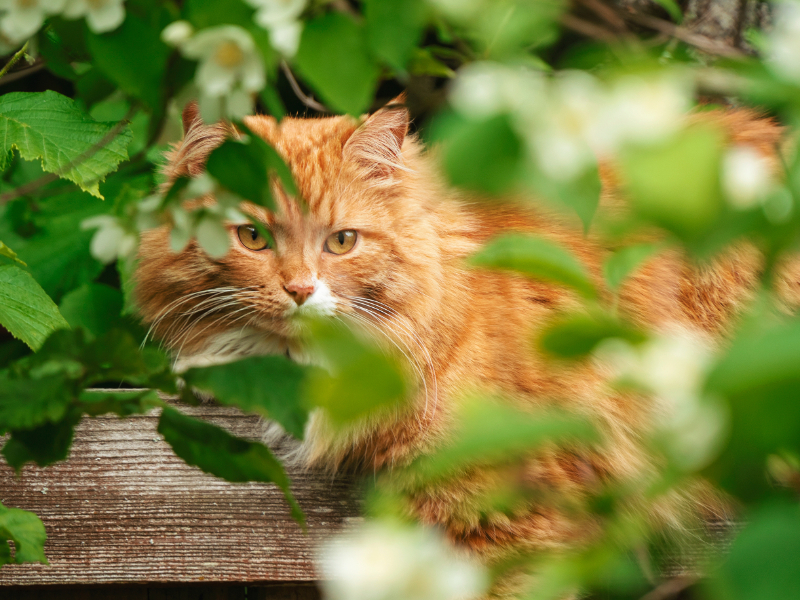
1 | Plants
If you are an avid gardener or like to spruce up the exterior of your home in the spring and summer, there is a large selection of plants and flowers to choose from. However, whether you are planting them outside or bringing them in to your home, you should know which ones are safe for your pets and which ones can kill them.
A variety of garden lilies pose risks for cats, especially if they chew on them. Dr. Smits says the toxic compound found in a lily can cause severe damage to the cats that have chewed on them.
“Toxic compounds in the lily are absorbed from the stomach and intestine into the blood, then destroy the kidney as it filters that blood to create urine that normally gets rid of things the body doesn’t need,” explained Smits.
Symptoms can include salivation, vomiting, depression, dehydration, and loss of appetite. Smits says owners may see an increased frequency of urination, which will gradually stop entirely as the kidneys shut down. If you encounter this situation, the best plan of action is to call your veterinarian or local poison control centre to get advice on how to make the cat vomit out the pieces of lily.
“If or when signs of poisoning appear, bring the cat to the veterinary clinic where it will likely require IV fluids and support in an attempt to clear the toxin from the blood and protect the kidneys,” said Smits.
Another plant dangerous to animals, specifically dogs, is the Sago Palm. However, it is rare that you will encounter this in Canada as it grows in subtropical areas like Texas and Georgia. However, if you are posted OUTCAN to the United States, you should keep an eye out for this plant. The Sago Palm is dangerous to dogs because of the several toxins in the leaves, fruits, and seeds.
These toxins cause liver poisoning. “With sudden liver damage, affected animals may have nausea and vomiting. They will have a tender abdomen and lose their appetites,” Smits noted.
They will gradually develop jaundice in the whites of the eyes or the pink part of the gums. Smits says getting immediate veterinary care is crucial if these clinical signs appear. It’s always a good idea to contact your veterinarian if you notice anything out of the ordinary.
If you are looking for pet-friendly plants to add to your home, Smits suggests barley, oats, or other similar grass-like plants cats can chew on safely. Catnip is also easily available and can be grown in your own garden.
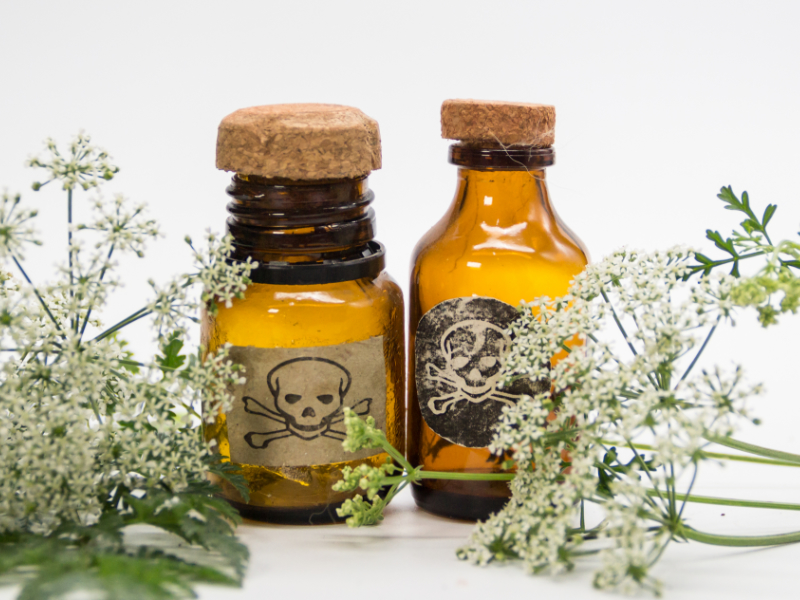
2 | Essential Oils
As the trend of using essential oils for stress, as holistic approaches to illness, and as air fresheners continue to rise, there have been many reports of animals suffering from inhalation and skin issues as well as neurological symptoms when essential oils have been used in common household diffusers.
“Essential oils may contain naturally occurring toxicants which have evolved in the plants to defend themselves against being eaten,” explained Smits. “Those same compounds are greatly concentrated when the oil is extracted from those plants.”
Highly concentrated oils include:
- creosote,
- citrus,
- peppermint,
- tea tree, and
- a variety of potpourri mixtures.
Exposure to these can cause a variety of issues in both cats and dogs, including:
- Direct irritation to the skin or mucous membranes of the eyes, nose, and mouth.
- Damage to the liver after entering the digestive tract and being absorbed into the blood.
Smits says the liver is a vulnerable organ in puppies and other young animals. If you use essential oils in your home, here are some tips to protect your furry friends.
- Don’t use a diffuser in a room your animal frequents – if you do, close the door while it’s in use and wait one hour before letting the animals in that area.
- Although oils can be used directly on human skin or even in food – do not transfer this practice and use it with your animals. As mentioned above, it can cause a variety of issues for your furry friends.
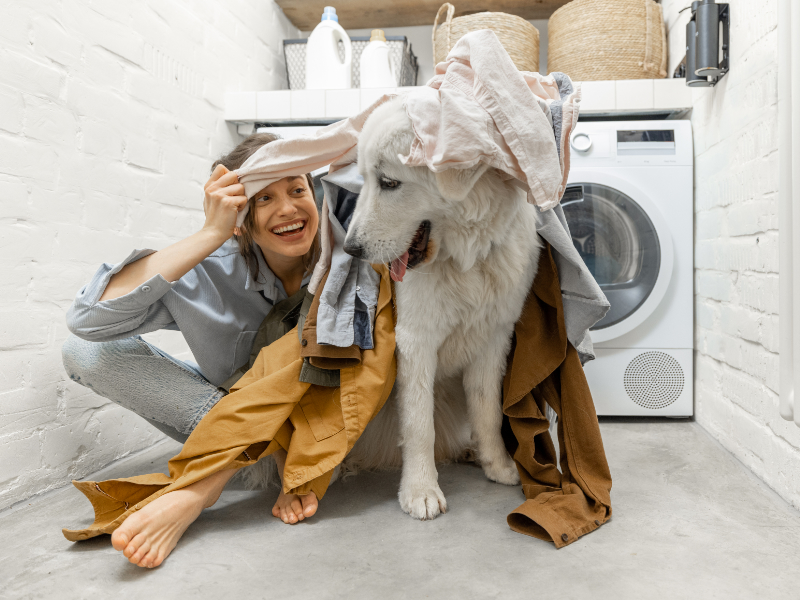
3 | Dryer Sheets
You might be thinking, “Why dryer sheets?” Dryer sheets work because of their detergent-like qualities, which help eliminate static from clothes. Although safe for humans to handle, dryer sheets contain chemicals such as chloroform, benzyl acetate, and camphor that can be transferred to an animal’s fur.
“Pet owners should never be tempted to use them to de-charge the hair of their cats or dogs, who end up grooming off the toxic compounds,” noted Smits. “Through chemical reactions, those same chemicals corrode mucous membranes of the eyes, nose, mouth, and throat, and in higher doses can cause serious lung inflammation. Both used and fresh sheets can be toxic.”
If you have pets prone to digging in your laundry baskets or getting into things they aren’t supposed to, it’s a good idea to remove the dryer sheet from the laundry when it comes out of the dryer. Plus, keep the box out of reach from your pet.
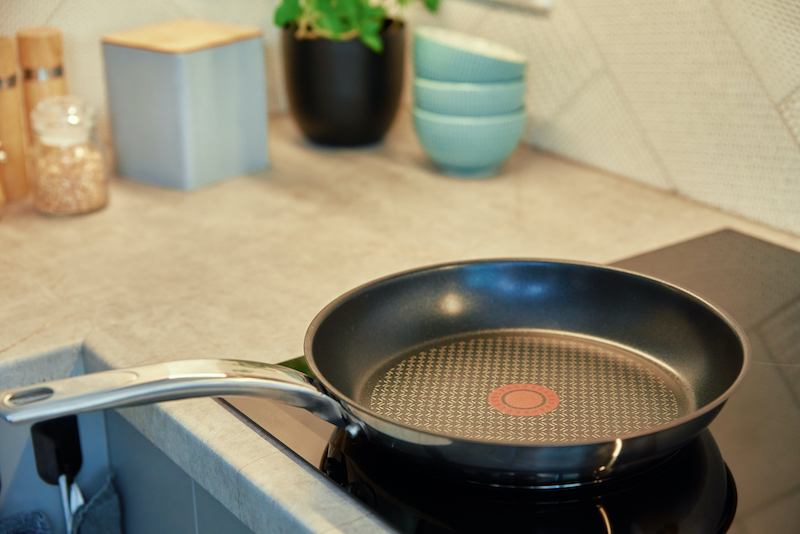
4 | Teflon
Teflon is a non-stick lining used on pots, pans, and baking trays. It is also extremely toxic to birds. When heated during cooking, teflon creates lethal fumes that can affect parrots, parakeets, budgies, and other songbird pets.
“Pet birds that are exposed to those fumes very quickly may drop dead, be found dead or develop severe breathing problems,” said Smits.
Self-cleaning ovens can also produce the same toxic fumes when heated at high temperatures. Smits suggests moving any pet bird away from the area when these products are being used.
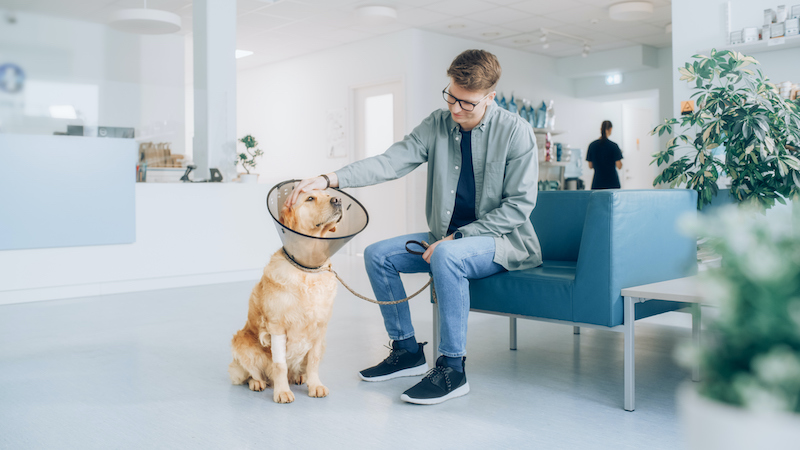
Using Proper Precautions
Proper precautions when using these products and choosing the right plants to bring into your home can help avoid tragic accidents and unnecessary trips to the vet.
If you are unsure about a product you frequently use, simple research can ease your mind and help you make decisions that will keep you and your pets happy and healthy.


